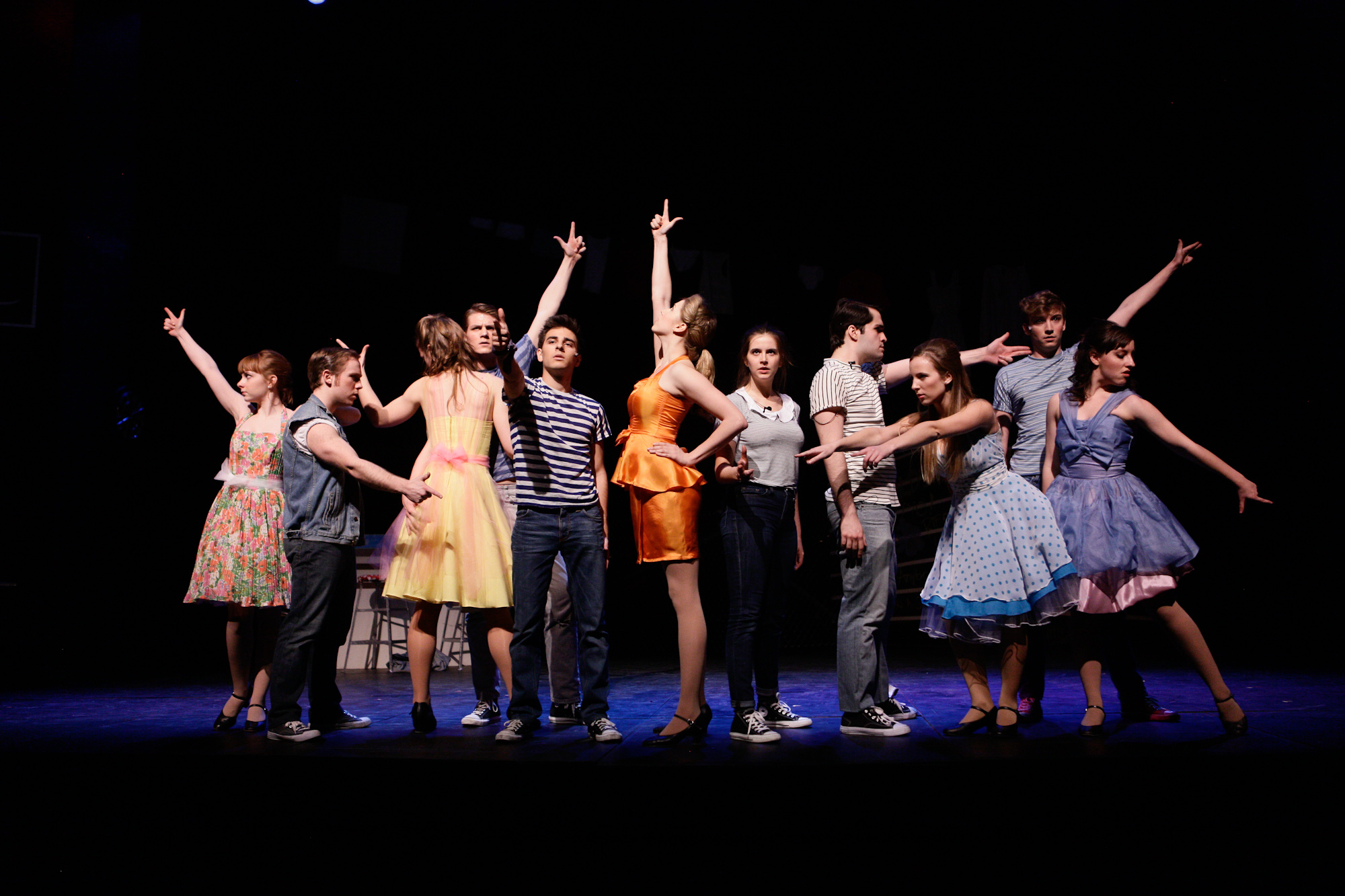America, despite its violent early emancipation from its colonial overlords, has always harboured a deep-seated, almost shameful Anglophilia. This is perhaps most evident in the cultural sphere, where only the audacity of the American would allow him to appropriate that most revered of all English literary titans, William Shakespeare. West Side Story, one of the more successful efforts at such appropriation, transplants the star-crossed passion of Romeo and Juliet from the opulence of Verona to the blue-collar grit of ‘60s New York City. The Arts Undergraduate Theatre Society (AUTS)’s rendition of this classic is mostly faithful and acceptably competent, with a few flashes of strength and talent.
Whereas conflict in Romeo and Juliet stems from aristocratic feuds, West Side Story traces its problems to ethnic tension. The irony is that the solution proposed here—the stick-and-carrot combo of assimilation and ‘the American dream’—is decidedly less universally palatable than the authors may care to admit.
The Sharks are a Puerto Rican gang, the Jets, Caucasian; the latter accuses the former of moving in to take ‘their territory’; repeated skirmishes between the two sides have not served as a valve to release pent-up pressure, so much as to incubate it. Caught in the middle are the lovers Tony and Maria, each from an opposing side of the ethnic divide.
Given this context, it is unsurprising that the musical brims with heightened passions. Yet, AUTS’ cast is too often too limp, overcome with lethargy. This is particularly true in large ensembles, and during the first act, where the lack of energy makes for noticeable problems in synchronicity. To director and choreographer Rebecca Pearl’s credit, it can be deduced from her dynamic blocking and vigorous choreography that the intention of the production is no pulled punches, a choice of force over subtlety—yet the cast lacks the necessary momentum to follow through on this promise.
Christopher Stevens-Brown’s Tony maintains a curiously stooping posture, with short, staccato cadence that seems like an attempt to channel Jesse Eisenberg. Stevens-Brown’s speaking voice is a stark contrast to his singing, which glows with richness, despite being occasionally challenged in the upper registers. As Maria, Piper Ainsworth is likewise stronger in her vocals than in her characterizations, though she does find compelling dimensions to the role in the second act. Unfortunately, the lack of chemistry between the two is a formidable stumbling block for much of the production.
The clear stars of the show are two of the prominent supporting characters, Anita (Vanessa Drusnitzer) and Riff (Ryan Kligman). Drusnitzer possesses no flaws—she is equally formidable and brilliant in her singing, dancing, and acting. For her nuanced portrayal, Drusnitzer is rewarded with a memorable, scene-stealing turn. Kligman similarly exudes personality, bringing to Riff a certain slick suaveness that this critic has not seen in previous renditions. Much of the reason why “Cool” is this production’s best song can be credited to Kligman. Another standout was Diesel (Ben Harris), who, in going beyond the confines of the script, breathes life into the character.
Michèle Robinson’s lighting design is wonderfully imaginative, with a boldness and deftness that compliments the production’s aspirations. The live orchestra was generally capable, making minimal errors, though the brass section was a cause of concern at times. As noted earlier, Pearl’s choreography—aided by Galen Macdonald’s unobtrusive and functional set design—is effective and sharp, which comes through even with imperfect execution. The performance attended also had sound errors too frequent to ignore; one hopes that this is a wrinkle that will be quickly smoothed over.
By the very end of the production, AUTS’ cast finds a powerful emotional chord to pluck, finally fulfilling the potential that is drizzled tantalizingly throughout the show. Alas, this discovery of strength comes far too late.
The Arts Undergraduate Theatre Society’s production of West Side Story runs Jan. 31 to Feb. 2, 7:30 p.m. at Moyse Hall. Student tickets $15.








